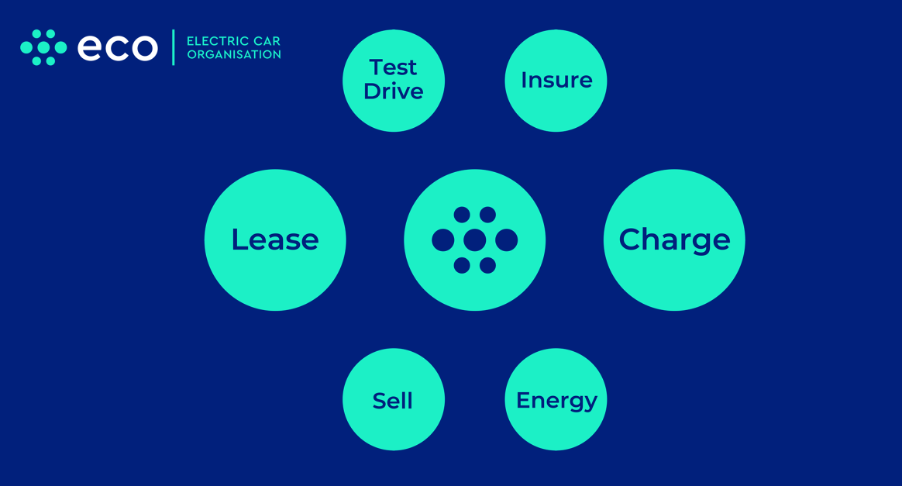
The development and production of new electrified vehicles from hybrids to 100% pure electric is at the forefront of almost every manufacturer’s future plans, with many showcasing future instalments for this area of the industry.
To support this electric shift in Britain, Electric Car Organisation (ECO) launched with a mission to assist businesses and employees switch over to EVs, which not only saves them money but also reduces their carbon emissions.

Discover B2B Marketing That Performs
Combine business intelligence and editorial excellence to reach engaged professionals across 36 leading media platforms.
The company provides individuals with the option to lease an electric car, selecting a model from hundreds of new EVs and the ability to pick from insurers who specialise in EV insurance. The company aims to provide a simple, easy process to encourage individuals to make the switch to an EV vehicle and start their electric journey.
Just Auto (FY): Could you tell me a little bit about Electric Car Organisation and what it offers?
Steve Endacott (SE): What we’re trying to do is be a lot more realistic about the issue of moving to EVs. Our main focus is on leasing and charging, that’s where we do our heavy lifting.
I come from a background in travel where we build aggregation, for example, MoneySupermarket, Views.com. At ECO we have built an insurance aggregator that aggregates all the different insurance providers readings. When you first get your EV your electricity bill goes up by 20%, but most importantly you need to move to a day and night tariff.
We’ve teamed up with Uswitch and we identify the best tariffs and then we pass the customer to Uswitch to make that switch. When you move to a lease you need to sell your old car. So, we’re working with Motorway and We Buy Any Car to value the car to tell them what it’s worth, so they can understand what that car is worth and what they can afford to spend on the lease and test drive.
We’re working with a lot of the daily rental car companies. Rental car companies take on massive fleets of cars, drive them and then customers return them. That doesn’t really work for EVs because people don’t want to rent an EV for two or three days without a charger.
At ECO we’re taking them for month long rentals and we’re using it to fill the gap between a customer saying: “I want the car” and “I can get an EV” because there’s a big gap. This month-long period also allows people to try different cars.
How does the company aim to promote the uptake of EVs?
Most leasing companies work with companies that have a fleet of cars that they need for work purposes. We’re not going after that market.
Most of these lease companies turn up the door, throw the keys at the fleet manager. That’s their job done. Ours is all about education.
We’ve got to build that communication platform, and it’s a five-year education. When you’re talking to the employees, in normal circumstances only one in 10 people change their car every year, so you have a 10% chance. When this programme is a five-year programme of education and communication that’s not something that lease companies are currently set up to do.
That’s why we see ourselves as more of a marketing company and a consulting company and deliver many physical services because we then partner with leasing companies to deliver the physical service.

The other topic is this salary sacrifice scheme that the government is inadvertently creating – my Tesla outside is a perfect example. If I paid for that, myself, it’ll cost £1,000, £200 VAT, so £1,200. If I put it through my company’s salary sacrifice, I don’t pay tax on that salary, so I save £420 which is 42%.
The company also saves £150 by not paying National Insurance and can claim half the VAT back so every £1,000 is £250 that the company gets for doing this.
You can have a brand new EV as a company car, and you can save 42% by doing it. Lots and lots of companies will introduce salary sacrifice, that’s what we call the Green Fleet.
What do you see the future holding for the EV market?
In five years’ time the top five manufacturers will not be the top five manufacturers today. The chances are that the current manufacturers who are good at combustion engines, brakes, pads, oil, are moving to a world where it’s all about the battery and the electronics.
We have what I call a ‘petrol station mentality’ where everyone wants to fill their car up in five minutes, and there’s debate about whether that will be replicated with super-fast chargers or not. My answer is no it won’t, because super-fast chargers will damage the batteries in the car, the faster you charge the batteries, the more you damage them.
The future will become overnight charging but then comes the issue of where do you overnight charge?
For overnight chargers one will be at home, one will be at the office. The other one is that car parks will be the new petrol stations.
For example, when I go to Brighton, I don’t want to stop on the motorway for an hour to supercharge, I want to book an overnight charger. These can be made available by pubs, restaurants, and hotels. Other people have got the car parking overnight, they will become the petrol stations – but they must be booked.
One of the things I talk about at the moment is electric parking range; you turn up and there are three parking spots at the supermarket, but someone has parked there and gone off for the day.
There’s the issue of how do you know when someone’s going to come back from their shop? How do you know when that charging space has become available? You need the booking ability going forward, particularly for overnight charges.
When looking at the implementation of clean air zones what are your thoughts on the topic?
If you look at the clean air zone in London, it is highly logical within the M25 [London’s orbital highway or ‘motorway’]. Look at what they’re trying to do up north – it doesn’t work.
The M60 surrounds Manchester, so logically, yes it could work for the M60, but they have also done it for all the boroughs around that as well – so you’ve now got a motorway inside your clean air zone. How does that work?
If you leave the motorway, you’ve got to pay £10 to fill up with petrol, therefore you’re not going to leave the motorway. That means that the petrol providers on the motorway will charge you a fortune.
They are fundamentally flawed because you can’t have a motorway in a clean air zone; the second point is you can’t penalise people into moving to an EV. Clean air zones are a bit likeVAT. For example, if all the local taxis would have to pay £10 a day extra just to drive in the local area do you think they’ve got the money to move to EVs?
Also, there’s not enough EVs available at the moment. Demand is outstripping supply and that isn’t going to change. So therefore, you can’t do clean air zones and things like that util and to at least 2026 when there are enough EVs to allow it.
What more do you think needs to be done in regards to the lack of EV charging infrastructure?
Infrastructure-wise, it’s really important that businesses get on the bandwagon – certain staff will never have the ability to have a home charger. The only place logically they should be charging is at work; therefore, that’s why it’s really important to incentivize businesses to have a home charger.
The other thing the government did, which was madness, is this £3000 allowance that they used to have on an EV, which meant the manufacturers just put the prices up by £3,000. It’s a pointless subsidy which is going into somebody’s pocket.
They have scrapped the substitute for the home charger, and I agree with that because if you’re buying an EV you’re going to buy a charger anyway – but they have kept the subsidies for installing chargers at work and at commercial properties and that’s where I want to see the money go.
I believe it’s not about fast chargers, it’s about slow chargers. I believe it’s about turning car parks into petrol stations.






